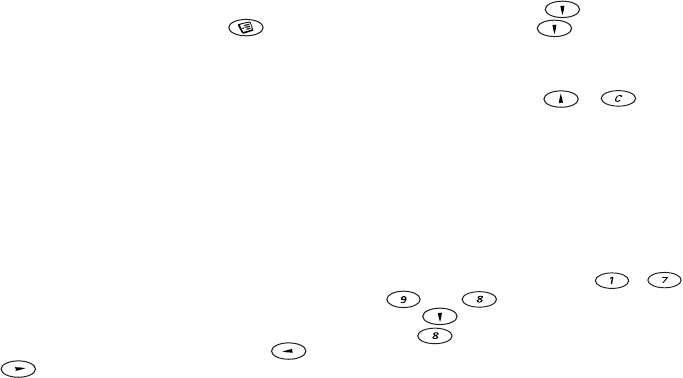
7KLVLVWKH,QWHUQHWYHUVLRQRIWKHXVHUVJXLGH3ULQWRQO\IRUSULYDWHXVH
12 Chinese input
Switching between Chinese input methods
In the Chinese editing mode, you can switch to
another input language by pressing and then
selecting input language. Scroll to the input language
you want and press
YES
.
General instructions for entering
Chinese
characters
Regardless of which input method you choose, your
phone has a function to speed up the entry of Chinese
characters. Whenever you enter a stroke or a Pinyin
letter, a candidate row of the most frequently used
characters containing that stroke, or relating to that
letter, appears at the bottom of the display. These
characters are displayed in order of frequency. The
most frequently used character always appears in the
middle of the candidate row and is highlighted auto-
matically by the cursor. The next most frequently
used characters appear at either side, in the pattern
42135. If the character that is highlighted is the one
that you want, press
YES
to enter it, or use or
to go to the character that you want.
If the character that you want is not displayed in
the candidate row, press and a new candidate
row is displayed. Press again until the charac-
ter you want is displayed, or enter the next stroke or
letter and a new set of characters will be displayed in
the candidate row. To go back to a row that was pre-
viously displayed, press or . In this way,
you can quickly and easily enter Chinese characters
and reduce the number of key presses that you need
to make.
Input methods in detail
Stroke input
A Chinese character is built up of strokes. There are
more than 30 basic strokes, which are grouped into
8 stroke categories. Each category is represented on
the keyboard by one of the keys – and
. Key has a special function. You can
press to display more characters. The Wildcard
key, , is used when you are not sure of which
stroke to use. See “Example of stroke input:” on
page 15.


















